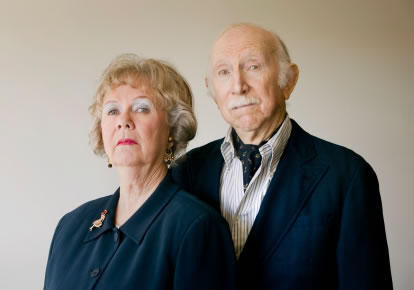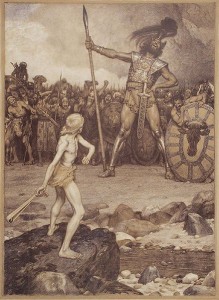Published: April 17, 2012

Image: iStockphoto
What makes some people give blood and bake casseroles for their neighbors, while others mutter about taxes from behind closed blinds?
A new paper published in Psychological Science, a journal of the Association for Psychological Science finds that part of the answer—but not all—may be in their genes.
The hormones oxytocin and vasopressin are thought to affect how people behave toward each other. For example, lab tests have found that people play nicer in economic games after having oxytocin squirted up their nose. “This is an attempt to take this into the real world a little bit,” says Michael Poulin, of the University at Buffalo. He co-wrote the paper with Anneke Buffone of the University at Buffalo and E. Alison Holman of the University of California, Irvine. “We really haven’t seen it applied as much to broader-scale social behaviors—giving to charity, participation in the civic arena, and so on.” [continue reading…]
Published: January 23, 2012

Image: Wikimedia ~David and Goliath, a colour lithograph by Osmar Schindler (c. 1888
After the huge 2010 oil spill in the Gulf of Mexico, the chairman of BP referred to the victims of the spill as the “small people.” He explained it as awkward word choice by a non-native speaker of English, but the authors of a new paper published in Psychological Science, a journal of the Association for Psychological Science, wondered if there was something real behind it. In their study, they found that people who feel powerful tend to overestimate their own height—they feel physically larger than they actually are.
“Maybe there’s a physical experience that goes along with being powerful,” says Jack A. Goncalo of Cornell University, who cowrote the paper with Michelle M. Duguid of Washington University. “For people who are less powerful, maybe other people and objects loom larger, and for the powerful everything else just seems smaller.” Plenty of research has shown that taller people are more likely to acquire power; taller people make more money, on average, and are more likely to be promoted. But our research is the first to show the reverse may also be true power also makes people feel taller. [continue reading…]
Published: November 8, 2011

©istockphoto
We’re not always aware of how we are making a decision. Unconscious feelings or perceptions may influence us. Another important source of information—even if we’re unaware of it—is the body itself.
“Decision making, like other cognitive processes, is an integration of multiple sources of information—memory, visual imagery, and bodily information, like posture,” says Anita Eerland, a psychologist at Erasmus University Rotterdam in the Netherlands. In a new study, Eerland and colleagues Tulio Guadalupe and Rolf Zwaan found that surreptitiously manipulating the tilt of the body influences people’s estimates of quantities, such as sizes, numbers, or percentages. The findings will appear in an upcoming issue of Psychological Science, a journal published by the Association for Psychological Science.
When we think about numbers, we mentally represent smaller numbers to the left and larger numbers to the right. The researchers surmised that leaning one way or the other—even imperceptibly—might therefore nudge people to estimate lower or higher. To test this hypothesis, study participants—33 undergraduates—stood on a Wii Balance Board that imperceptibly manipulated their posture to tilt left or right or stay upright while they answered estimation questions appearing on a screen. The participants were told they probably didn’t know the answers and therefore would have to estimate; they were also instructed to stand upright throughout the trials. A representation on the screen, below the question, of the person’s posture showed it to be upright even when it was not. The participants answered the questions one by one verbally. [continue reading…]

Image: iStockphoto
Study explores how dogs think and learn about human behavior
Can dogs read our minds? How do they learn to beg for food or behave badly primarily when we’re not looking? According to Monique Udell and her team, from the University of Florida in the US, the way that dogs come to respond to the level of people’s attentiveness tells us something about the ways dogs think and learn about human behavior. Their research, published online in Springer’s journal Learning & Behavior, suggests it is down to a combination of specific cues, context and previous experience.
Recent work has identified a remarkable range of human-like social behaviors in the domestic dog, including their ability to respond to human body language, verbal commands, and to attentional states. The question is, how do they do it? Do dogs infer humans’ mental states by observing their appearance and behavior under various circumstances and then respond accordingly? Or do they learn from experience by responding to environmental cues, the presence or absence of certain stimuli, or even human behavioral cues? Udell and colleagues’ work sheds some light on these questions. [continue reading…]




